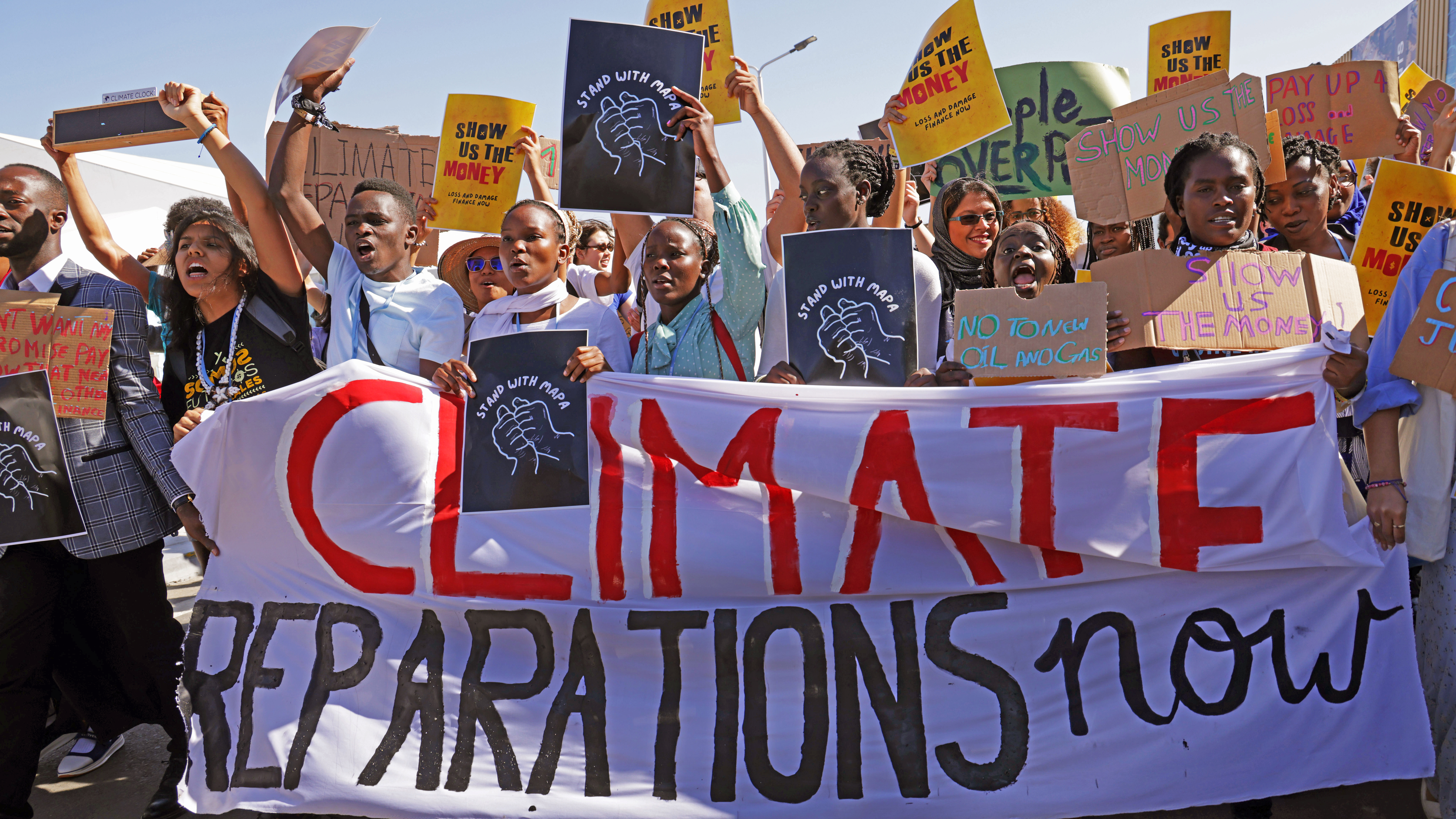In the week since the end of the COP27 conference in Egypt, there’s been a PR war. Predictably, the agreement that the world’s high-income nations would pay ‘climate reparations’ to poorer countries didn’t meet with universal delight. But the disagreements weren’t just about the impacts of climate change, and who should pay for them. The COP27 proposal sits right at the heart of the culture wars and the ongoing controversies about slavery reparations, as well as this week’s repatriation of the Benin Bronzes.
The ‘loss and damage’ proposal addresses the fact that low-income countries are on the one hand disproportionately affected by climate instability, and on the other have emitted the least carbon. It didn’t come out of thin air. At COP26 in Glasgow last year, campaign groups were angry that no agreement had been made on this $100billion fund to help poorer nations in the transition to greener energy.
The world’s billionaires achieved $4 trillion profits in the first year of the Covid pandemic alone, but climate change ‘activists’ such as noted private jet collectors Bill Gates and Mark Zuckerberg didn’t step up. And so COP27 proceeded in the usual mould of disaster capitalism: having privatised pandemic profits, international governance turned now to climate change, and national governments agreed to step in to socialise the losses.
Reaction has been fierce. In Sunday’s Wall Street Journal, climate change ‘pragmatist’ Bjorn Lomberg set the tone, questioning the reality of these emission ‘sins’. According to the Daily Telegraph, the decision of Rishi Sunak’s Conservatives to comply would lead to yet more voters abandoning the Tories in ‘electoral annihilation’. Writing in the Spectator, Toby Young argued that low-income countries ought to thank Britain for kickstarting the industrial revolution and associated technologies which have lifted billions out of poverty.
The word ‘reparations’ is a touchstone for controversies around how we remember slavery, and the row over ‘climate reparations’ is a reminder of the fault lines. So what’s going on here, and how do the ‘history wars’ connect to arguments about climate and biopolitics? What’s really at stake is the question of inequality in the past and the present — and who is responsible for it.
The linking of slavery to climate is dismissed on the Right as ‘woke’. But a globally inclusive approach to the historical past is vital to understanding modern crises. Historians of Atlantic slavery have long argued that the Caribbean sugar plantation represented an early form of industrial workplace. It was also on sugar-producing islands such as Barbados that the model of environmental degradation alongside economic extraction took shape, a model which has produced a whole range of ecological problems worldwide ever since — of which climate change is just one. This is exactly why the reparations debate has long linked the histories of slavery and environment, well before COP27.
Moreover, while conservative commentators have decried Covid biopolitics as an unprecedented assault on bodily autonomy, there’s nothing unprecedented about these policies. The history of European colonial power in 20th century Africa involved the brutal use of medical power over the bodies of African colonial subjects. A useful summary was provided in July 2020 by the historian Florence Bernault, as the pandemic reached the end of the first wave. As she put it:
This shows the misfiring of the reactive response to the history wars. Rather than being worthy of dismissal through grandstanding editorials generalising about ‘wokery’, histories of colonial violence are crucial in understanding the dilemmas faced in the latest iteration of crisis capitalism which was rolled out during the Covid pandemic, and now at COP27.











Join the discussion
Join like minded readers that support our journalism by becoming a paid subscriber
To join the discussion in the comments, become a paid subscriber.
Join like minded readers that support our journalism, read unlimited articles and enjoy other subscriber-only benefits.
Subscribe